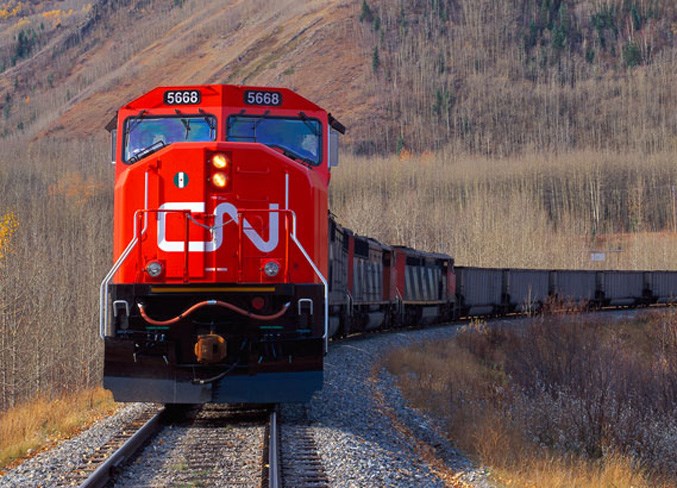The Canadian National Railway Co. (CN Rail) strike has caused significant impacts across the country, especially for grain producers and the oil industry.
Local grain farmer Dwayne Kalinsky described the strike as "another dagger in our backs."
"We might be waiting for months to get some of our grains to market. If you have a contract for December, you might be waiting until March," he explained. "It could really hurt cash flow... We struggle to get our crops in, and we need the cash flow so we need to get our products to market. A large portion is shipped out, we only use a small portion locally. Most of it's exported, and it's not a good situation."
Roughly 3,200 unionized CN Rail employees, including conductors and yard workers, walked off the job on Tuesday, Nov. 19 after negotiations on a new contract were unsuccessful. CN Rail staff have been without a contract since July.
Major concerns for workers include long hours, fatigue, and dangerous working conditions.
The strike compounds previous issues faced by local ag producers due to the poor weather conditions experienced this past fall.
"The rail, especially if you're shipping cereals, they always seem to be two or three weeks behind in terms of getting the trains to the terminals to get them moving and get them out," noted Gordon Graves, Alberta Beef Producers Zone 8 director and Iron River farmer. "It doesn't take much of an interference, even if there's a major storm in the mountains for a day and it becomes four or five days when it comes to moving anything in the prairies. It just backs everything up, and it does it fast."
The Alberta government, among other organizations such as Grain Growers of Canada, called on Prime Minister Justin Trudeau on Nov. 19 to reconvene parliament early in order to put an end to the strike.
"Our farmers... not being able to ship the grain that they do have available is going to be devastating to the industry," exclaimed Bonnyville-Cold Lake-St. Paul MLA David Hanson.
Lakeland MP Shannon Stubbs agreed.
"I'm most concerned about the impact this strike will have on grain farmers who are already in crisis because of a brutal harvest. This is the last thing they need in terms of uncertainty around being able to ship their products, and the additional costs for them," she detailed. "The Alberta economy just can't afford rail delays because of the strike. It will impact mining, forestry, manufacturing, and the economy right across the country."
The oil industry is also feeling the influence of the strike, which Stubbs noted as another major component that could have detrimental effects.
"Given the lack of pipeline capacity, which is the direct result of the Liberals in the past four years, the rail shipments have provided a bit of a backstop and additional shipment capacity for oil."
According to Alberta Minister of Energy Sonya Savage, CN Rail ships in excess of 170,000 barrels of western Canadian oil every day.
"Any disruption in shipments would have serious consequences for an economy that's already dealing with severe bottlenecks due to cancelled and delayed pipelines," she said in a statement. "Alberta cannot see further restrictions on our ability to export our product."
The Canadian Association of Petroleum Producers (CAPP) released a statement last week expressing their concerns about the consequences the CN Rail strike could have on the industry.
"All modes of crude oil transportation capacity are needed to ensure Canadian crude oil producers have sufficient market access to serve the needs of Canadians, as well as to access new and growing markets around the world," said Ben Brunnen, vice-president of oil sands, fiscal and economic policy with CAPP. "We live in a world that increasingly needs more energy as population levels rise, and developing countries seek to increase living standards."
Stubbs recalled previous rail strikes and the dire results they had.
"This strike makes it necessary for the prime minister to take urgent emergency action, and the response so far has been crickets basically."
For Kalinsky, the federal government "(isn't) exactly going to bat for farmers, and we don't hear a lot coming from them."
With the damage mounting from the strike for the agriculture sector, Kalinsky and Stubbs stressed a contract can't be reached soon enough.
"It's been a real struggle with the harvest weather-wise, and it's unfortunate we have one more thing thrown at us," Kalinsky expressed. "I'm hoping it just passes quickly."
Teamsters Canada Rail Conference, the union representing the employees, is currently in negotiations with CN Rail to reach an agreement.



